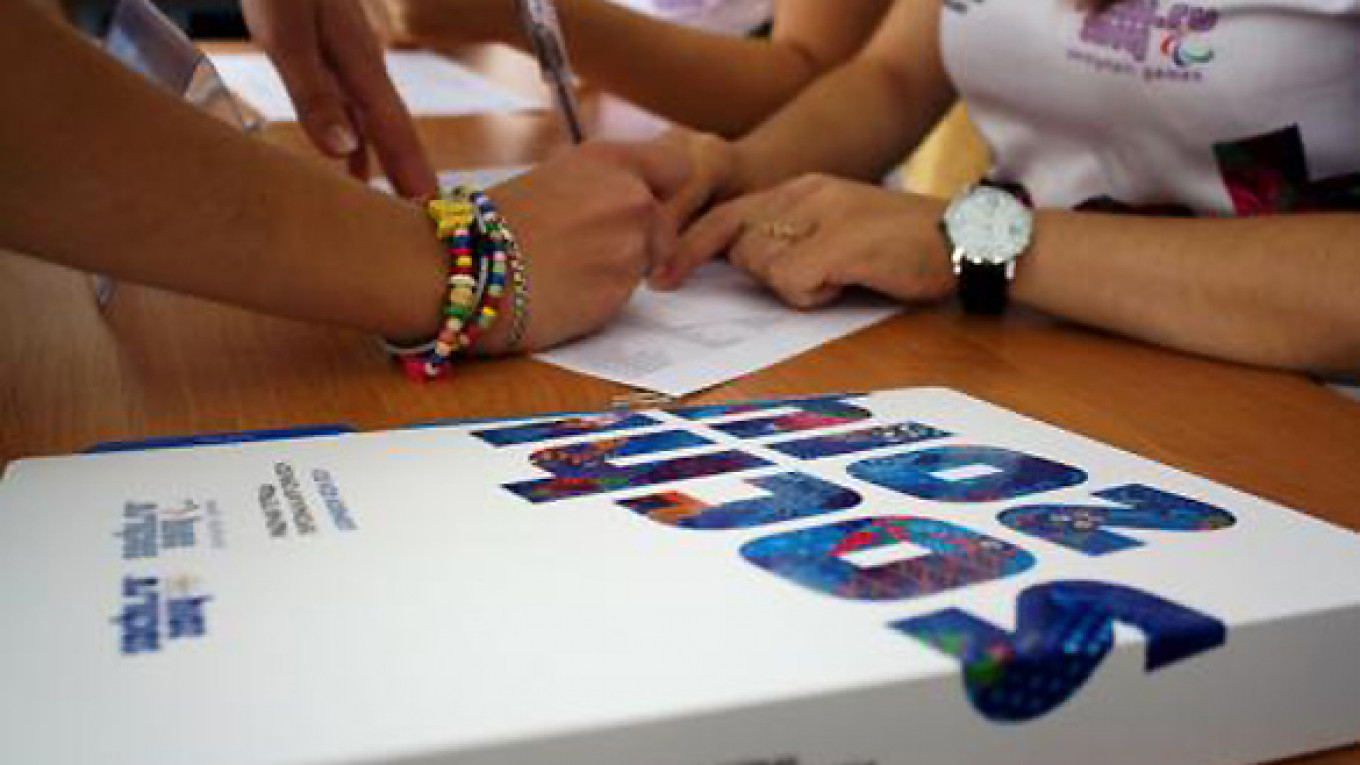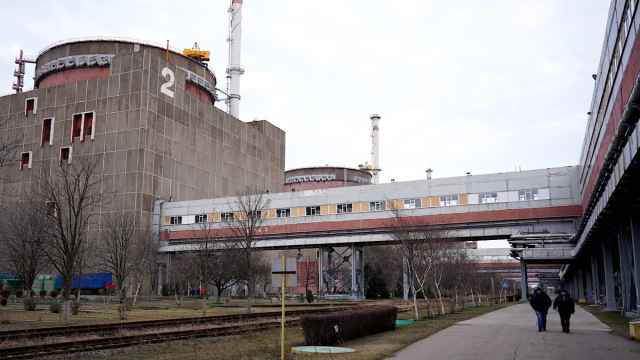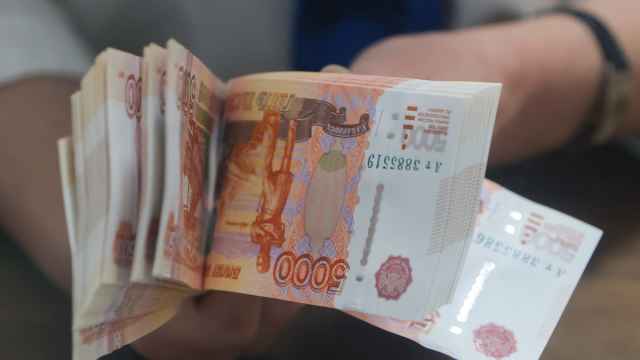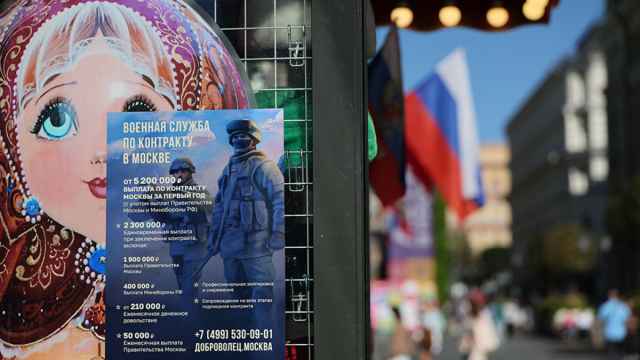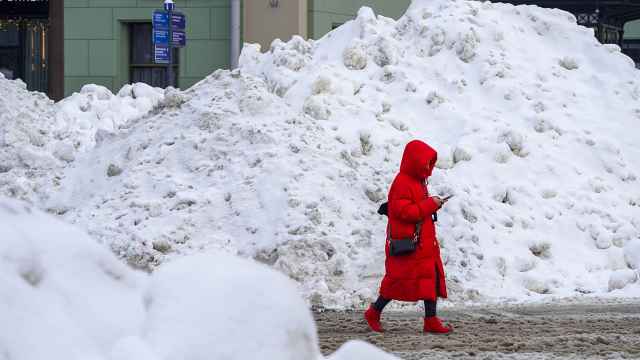They are young, bright and speak good English. Russia has trained 25,000 volunteers to work at the upcoming Sochi Games.
President Vladimir Putin, who views the Olympics that start on Feb. 7 as a top priority of his presidency, met with a few dozen volunteers Friday at a biathlon venue in the mountains above Sochi, saying their work "to a greater extent is key to the atmosphere" at the Games.
Volunteer candidates were expected to demonstrate at least an upper-intermediate command of English, and those selected were given online English classes. Some speak several languages.
Most of the volunteers are young and typically undergraduates like Yulia Nagaitseva, a 21-year-old journalism student from the city of Voronezh in southwestern Russia.
Nagaitseva was on a four-month work and travel program in the U.S. when she heard the Sochi organizers' call for volunteers.
"There are once in a lifetime events, and it is one of them," she said after the meeting with Putin. "I could not miss it."
Nagaitseva and other volunteers spoke of a stringent selection process for volunteers, which included multiple tests and Skype interviews.
Many foreign visitors at test events in Sochi last year spoke highly of the volunteers' language skills. They were also pleasantly surprised to see Russians smiling at them, unlike most Russians whose culture does not encourage smiling to strangers.
Volunteers were given classes on cultural awareness, which taught them to smile, among other things, said Sergei Pilipenko, a 52-year-old English professor from Kuban State University in the nearby city of Krasnodar.
Pilipenko, who will work at the main media center, recalled a recent meeting with a Japanese journalist.
"I saw a Japanese man bow — and we bowed back."
At his meeting with volunteers, Putin joked with the audience and answered their questions.
A volunteer from Beijing, who is studying to become a Russian translator, told Putin it was her dream to meet him.
"I simply cannot believe it," the woman said. "It is like a dream."
"I'll pinch you later," Putin replied.
Volunteers had roles assigned to them months ago, so they are getting training according to their future jobs, said Natalya Salmina, head of a training center in the Urals city of Ufa, who also attended the meeting with Putin.
Some volunteers are going to man transport hubs, showing visitors the way. Others will be responsible for helping professionals prepare ski slopes, for example. There will also be medical volunteers.
The 30-years-old Salmina, who teaches X-ray diagnostics at a university in Ufa, heads a training center that specializes in teaching volunteers for medical purposes.
Some of them are doctors with years of experience, but because of the Russian legislation, medical volunteers, even if they are practicing physicians, will not be allowed to treat patients on their own, she said. They will be working as assistant doctors in conjunction with paid doctors and medical translators.
Some medical volunteers speak several foreign languages. They will mostly be stationed at high-risk venues such as freestyle, Salmina said, "where they are most needed."
Volunteers in Sochi will account for a third of the total workforce at the games.
A Message from The Moscow Times:
Dear readers,
We are facing unprecedented challenges. Russia's Prosecutor General's Office has designated The Moscow Times as an "undesirable" organization, criminalizing our work and putting our staff at risk of prosecution. This follows our earlier unjust labeling as a "foreign agent."
These actions are direct attempts to silence independent journalism in Russia. The authorities claim our work "discredits the decisions of the Russian leadership." We see things differently: we strive to provide accurate, unbiased reporting on Russia.
We, the journalists of The Moscow Times, refuse to be silenced. But to continue our work, we need your help.
Your support, no matter how small, makes a world of difference. If you can, please support us monthly starting from just $2. It's quick to set up, and every contribution makes a significant impact.
By supporting The Moscow Times, you're defending open, independent journalism in the face of repression. Thank you for standing with us.
Remind me later.


